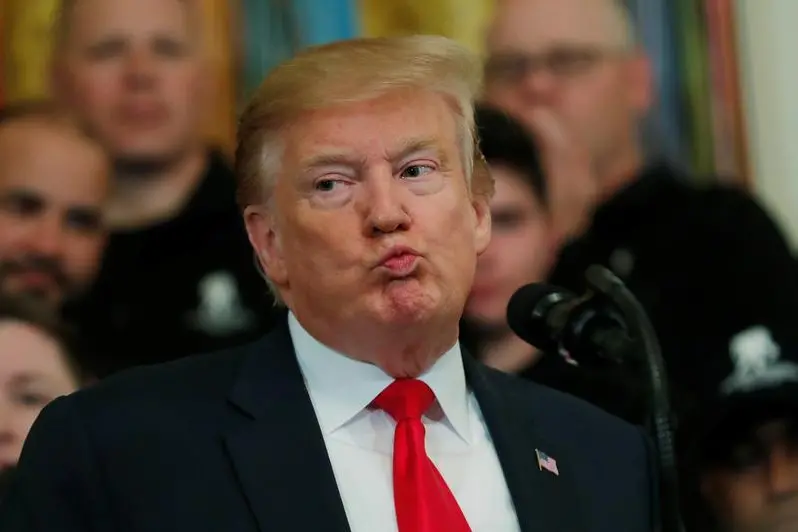PHOTO
SAN FRANCISCO - Donald Trump’s unpredictability could yet play in Huawei Technologies’ favor. The Chinese telecommunications firm has effectively been cut off from U.S. suppliers, from chipmaker Qualcomm to Alphabet’s Google. But that happened to Huawei rival too, and the president relented. Though it’s more of a stretch, a similar reprieve for Huawei can’t be ruled out.
Last week, Washington’s Commerce Department issued an order requiring companies that sell products overseas to Huawei to obtain a special license. Qualcomm, Infineon Technologies and Google are among the companies that suspended shipments or cut off access to certain products. The impact on the company’s business could be devastating, especially outside China where an inability to use Google’s Android operating system would hit smartphone sales hard.
U.S. authorities issued a similar ban on listed ZTE in 2018. The company’s shares lost more than half their value as investors took on board the impact. But then Trump reversed the ban in a bid to ease trade tensions. Under a deal hammered out after he spoke with Chinese counterpart Xi Jinping, ZTE instead had to pay a $1 billion penalty and replace its board.
The reversal angered some lawmakers, but they couldn’t muster enough support to change it, and ZTE’s stock eventually recovered most of the lost ground.
Privately held Huawei is a much bigger target. Intelligence officials have warned for years about security risks with equipment made by the company, which recorded around $100 billion of sales in 2018. The crackdown has broad bipartisan support. That will make it harder for Trump to overrule the ban.
But he is not always fully on board with his hard-line aides. The intensifying trade war with China has rattled markets, which Trump watches closely. And, as with ZTE, some U.S. companies that sell products to Huawei will suffer. The shares of chipmakers Qualcomm and Broadcom, for example, were both down about 6% in afternoon trade on Monday. With an eye on the 2020 presidential election, such factors could play into his thinking.
He would risk the ire of Congress, but lawmakers would need a veto-proof majority to reinstate the ban if Trump were to lift it. It’s one more wild card in the president’s hand.
On Twitter https://twitter.com/GinaChon
CONTEXT NEWS
- Alphabet's Google has suspended business with Chinese telecoms equipment maker Huawei Technologies, Reuters reported on May 19. Huawei will lose access to updates to Google's Android mobile operating system and future versions of its smartphones running on Android will lose access to popular apps, including the Google Play Store, Gmail and YouTube, according to the report.
- Alphabet's decision comes after the U.S. Commerce Department on May 16 put Huawei and its affiliates on its so-called Entity List. That means American companies selling products to Huawei must receive a special license.
- Chipmakers including Intel, Qualcomm, Xilinx and Broadcom have told their employees they will not supply critical software and components to Huawei until further notice, Bloomberg reported, citing people familiar with the matter.
- A similar ban on Chinese state-owned ZTE was lifted in 2018 after a conversation between U.S. President Donald Trump and Chinese counterpart Xi Jinping. In exchange, ZTE agreed to pay a $1 billion penalty, replace its board and host compliance monitors inside the company for 10 years.
- For previous columns by the author, Reuters customers can click on CHON/
(The author is a Reuters Breakingviews columnist. The opinions expressed are her own. Updates to add graphic.)
(Editing by Richard Beales and Amanda Gomez) ((gina.chon@thomsonreuters.com; Reuters Messaging: gina.chon.thomsonreuters.com@reuters.net))





















